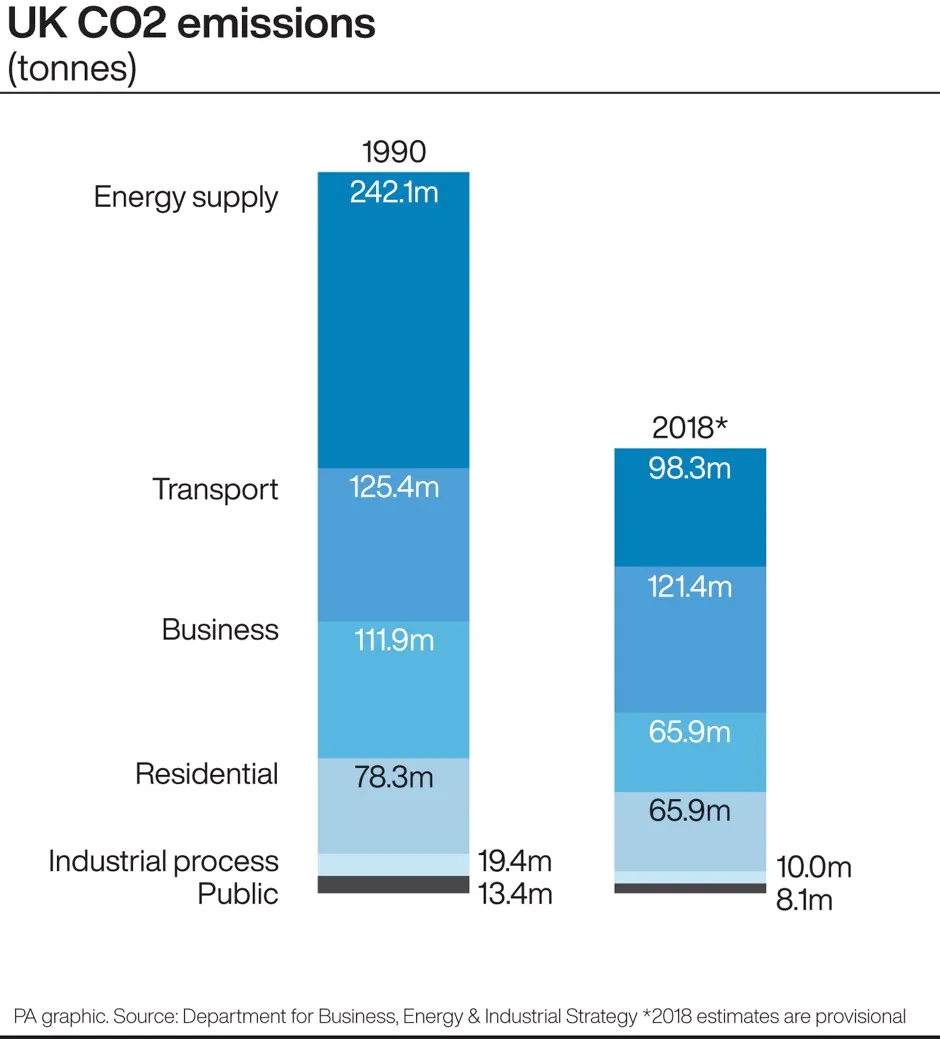The UK’s progress in reducing greenhouse gas emissions slowed last year, Ofgem has said.
The UK continues to be a global leader but greenhouse gases fell by 2.5 per cent last year, down from 3 per cent the previous year and the smallest reduction since 2012, according to the regulator’s annual state of the market report.
Read more about climate change:
- Christiana Figueres on climate change: “Net zero carbon is our only option”
- Triple the level of ambition to slow climate change, experts warn
It warned that “significant” investment and policy intervention, particularly in renewables, would be needed to meet the UK’s legal goals of reaching net-zero emissions by 2050.
Greenhouse gas emissions have fallen by 42 per cent since 1990, more than any other large advanced economy, due largely to the decarbonisation of electricity generation, Ofgem said.
Transport continued to be the largest single source of carbon emissions, although these fell slightly last year (3 per cent), partly down to an increase in the number of alternative fuel vehicles which now account for 2 per cent of the licensed cars on the road.
Ofgem has made decarbonising the economy a priority in its new corporate strategy and has promised to set out more detail on this early next year.
Joe Perkins, chief economist at Ofgem, said: “Ofgem’s latest state of the market report shows the progress made so far to decarbonise the economy but much more needs to be done.
“We want the UK to remain a global leader in bringing down greenhouse gas emissions, and our major objective is to help the country rise to the challenge of cutting emissions to net zero by 2050 at the lowest possible price to consumers.

“As well as protecting consumers in the future, our duty is also to protect those today.
“We will continue to enable competition and innovation which benefits consumers, whilst protecting those who need it, as we help build an energy market which works for all consumers.”
Citizens Advice chief executive Gillian Guy said: “The fact that cuts to carbon emissions are slowing down when they should be accelerating brings the Government’s decision to legislate for net zero by 2050 into sharp relief.
“Much of the current debate is focused on the technical questions of how this can be achieved. But there is another public conversation which needs to be had – who pays for the transition to a low-carbon economy and how do they pay?
“Current efforts to decarbonise are largely paid for through people’s bills – an approach which disproportionately hits the poorest in society. We cannot get these difficult decisions about decarbonisation wrong, because it will be those who can least afford it who will pay the price.”
A Department for Business, Energy and Industrial Strategy spokesman said: “We’ve led the world in tackling climate change, decarbonising faster than any other G20 country, but we know there’s more to do to achieve net-zero emissions by 2050.
“That’s why since legislating to end our contribution to climate change, we’ve announced more than £1 billion to help all sectors of the economy decarbonise – from transport to industry.”
Follow Science Focus onTwitter,Facebook, Instagramand Flipboard